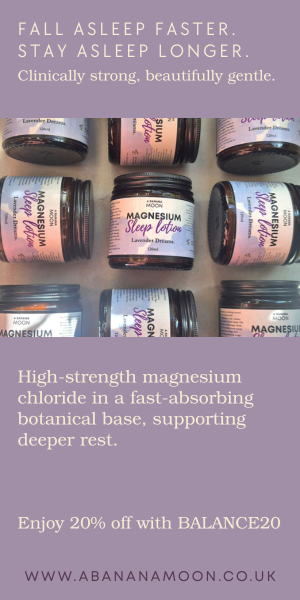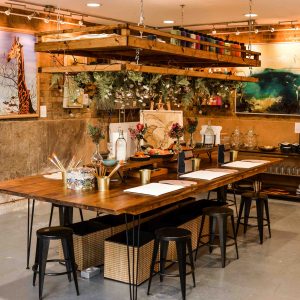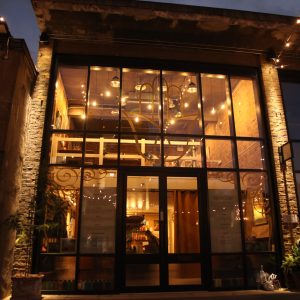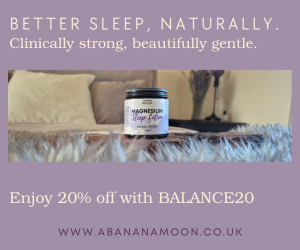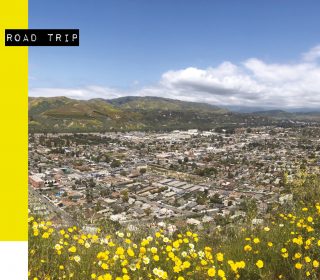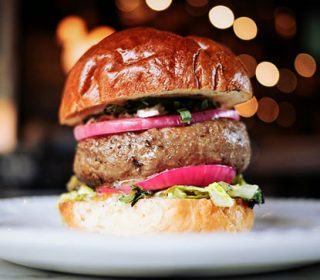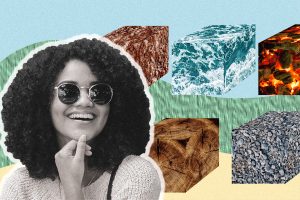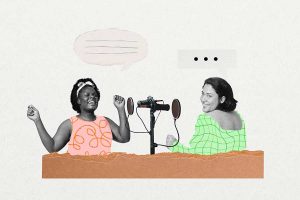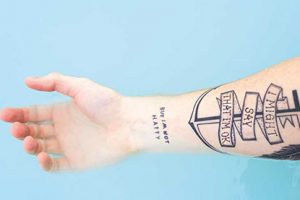Meet the founder of London’s first dedicated mindful art experience, an oasis of creative calm
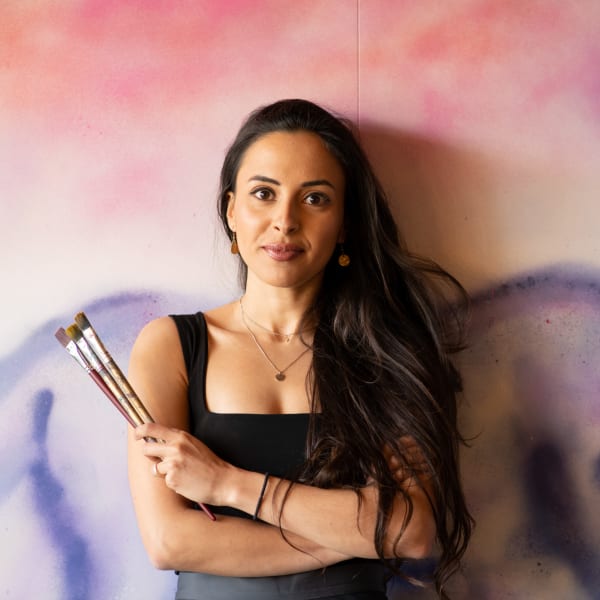
Zena El Farra is the founder of MasterPeace, an art studio in Eccleston Yards in central London, focusing on mindfulness and wellbeing. Six months into launching in 2019, she was hit by the full force of lockdown, but Zena wasn’t about to let the small matter of a global pandemic hold her back, heck no. She immediately diversified the business, launching art kits, going online and, ultimately, starring on Dragons’ Den, where she secured both investment from and the mentoring skills of Deborah Meaden, no less. She shares her inspiring success story with BALANCE.
What was your eureka moment?
The idea for MasterPeace came in 2018 when I was leading a busy city life – working a classic corporate job, as well as caring for my mum who was suffering with advanced cancer, all of which left little time for me to focus on my overall wellbeing. Suffering from the burnout that followed, my husband bought me a canvas to reignite my childhood love of art, and I began to paint again after having not picked up a paintbrush in years. It was the first thing I did that totally tuned me out of my own busy head and made it effortless to focus on just ‘being’.
I realised that there was a gap in the market for an art school that focused on creativity as a journey and not a destination: something you do as a restorative process and not necessarily for the output. Not as formal as a classical art school and not as wild as a painting party. My goal became to create a drop-in art experience which you could seamlessly incorporate into your everyday life and self-care routine, like a yoga class or meditation session. A few months later, I left my job and started MasterPeace.
What is your elevator pitch for the business?
We are London’s first dedicated mindful art experience, helping you to unwind through painting: at home, at work or in-studio. At MasterPeace, it’s not about how ‘good’ you are, it’s about enjoying a moment of creative calm in an always-on world.
How did you test your idea?
When MasterPeace opened our doors at the end of September 2019, we did so as a 6 month proof of concept on a pop-up lease. The idea was to use the time to test the idea, see if people really needed what we offered, and then go from there. Those six months led us to March 2020 when, of course, the pandemic started. In that time we had seen over 2000 guests, the most engaged having visited us weekly since launch. We were buoyed by guests’ stories of being able to sleep again after years of stress-induced insomnia and of having found the courage to start painting after years of self-doubt.
On the one hand, we had completed our 6 month test and were feeling more confident than ever that what we offered mattered. And on the other hand, we were faced with the most distressingly uncertain future. We took the risk, and took the plunge, and we’re still here 18 months on, stronger than ever.
How did you overcome the huge obstacle of the pandemic?
We were a team of freelancers at that point, so none of us qualified for furlough, and due to a council error, we were ruled out of scope of business grants – let’s just say it was not looking good.
So, we launched our art kits three days into the crisis, without any expectations around what would happen with them, but they have ended up being a significant business in their own right. It was a story in the newspapers about me hand-making kits on my bedroom floor in the first weeks of the pandemic that caught Dragons Den’s eye and led to them inviting me onto the show. So in some ways, that obstacle was the starting point for catapulting the business into a different world.
What advice would you give someone who wants to start a business on their own?
It’s tempting to get swept up in an idea and get emotionally invested in it, but unless you have got some really tangible evidence that says that your consumer really wants this and is willing to pay for it, there may be a hobby but not necessarily a business there. So, it’s important to dispassionately test your idea and be prepared for good news or bad news. And if it’s bad news, that’s all-good learning, and hopefully it takes you one step further into designing something that really does work. If it’s good news, great, the hard work starts there!
You hear this all the time at business school, but it’s crucial to have a diversified set of income streams so that you’re never dependent on one thing to make you money. For us, we were entirely dependent on our studio, and when that closed due to Covid, we didn’t have any contingency, so we were forced to diversify. Now, as well as the studio, we have our online business, our mobile app and we’ve started selling materials – and that all just makes us more resilient, more valuable to potential investors, and gives us a broader reach for the future.
Do you have a mentor?
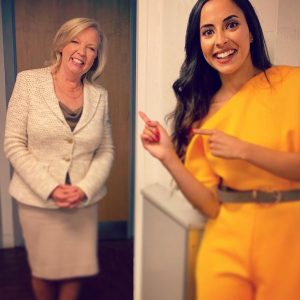
I am a mentor myself and I absolutely love coaching young, female, ethnic minority entrepreneurs, as I have direct experience of being one.
Have you got a plan B?
Businesses are like species: they have to constantly adapt to survive their environment. As Darwin famously said ‘It is not the strongest of the species that survives, nor the most intelligent; it is the one most adaptable to change.’ My plan A is to constantly evolve and adapt what we do to serve our communities’ new and changing needs. My plan B is to do a better job at my plan A.
What has been your most worthwhile investment?
My relationships with my guests, by a long way. I love that I know our guests names, their stories, what the experience means to them and how their art practice has helped them. Whenever I have a dark day when it all feels too much (and throughout the pandemic, there have been many of those days), without fail, my guests bring me back to my purpose and keep me going. Or at the very least they’ll make me laugh, suggest an idea I’d have never thought of, even become an investor or a brand champion. The community is everything to me.
What is coming up for MasterPeace?
In the short term, we have a creativity-packed summer schedule ahead, full of Al Fresco Classes, Mini MasterPeace classes and special events such as Hen Parties and Corporate Team Building sessions. We have a special mindful painting event at the Eccleston Yard Wellness Weekenders (at 5pm on Saturday 14th August, £25) and we have recently welcomed some amazing new artists to our artist collective, so will be defining some new class ideas and art kits ready for the winter months. We also featured at Wanderlust festival, and hope to feature at more events such as this. Longer term, the future for us is all about launching our Art Kits & IlluminArty Projector into a few big retailers and getting ready to open up more studios around the country.
What book would you recommend that everyone reads and why?
The Artist’s Way by Julia Cameron: this book will change your life if you’re a blocked creative of any sort, whether that be an artist, writer, singer, dancer. Also, F*ck it, Do what you love by John Parkin. I was reading this book when I had my no-going-back moment. I never even finished the book, my bookmark is still there on the page I was on when I put the book down to go and register the business.
How do you find balance in your own daily life?
When I experienced burnout, a mentor of mine at the bank I used to work at once said to me, ‘you have to learn to rest while moving’. It’s better to rest little and often than to allow burnout to creep up on you such that you have to stop completely: you have to learn to rest while moving. When you launch a business, it’s hard to maintain any form of routine, there are no evening or weekend resting rituals. You might find, unexpectedly, a few hours free in the middle of the day and you must find rest in that time. And it’s essential you do. It’s something I’ve struggled to adapt to, the lack of routine, but it gets easier with practice.
What’s the best piece of advice you’ve ever been given?
Whatever you’re not changing, you’re choosing. I honestly believe that, most of the time, you are in control of your destiny, and you have the ability to choose to live the life you want. If you have regrets about not pursuing your passion, not cultivating your creativity, not having written that book, not having learnt to dance, not having launched that business: it’s not too late.
How would you like to be remembered?
I’ve never thought about it but thinking about it now has made me realise how important it is to know the answer to this.
The most important thing to me to be remembered as is kind. I’d like it if someone remembered a time I made them feel a little better, made them laugh, encouraged them to do something they didn’t think they could do, made them feel heard, made them feel accepted. I think I’ll probably also be remembered for being a bit kooky, a misfit, creative, and occasionally hard-edged (to the point of scary) when it comes to business or standing up for something or someone (or when hungry).
Follow MasterPeace on Facebook and Instagram



